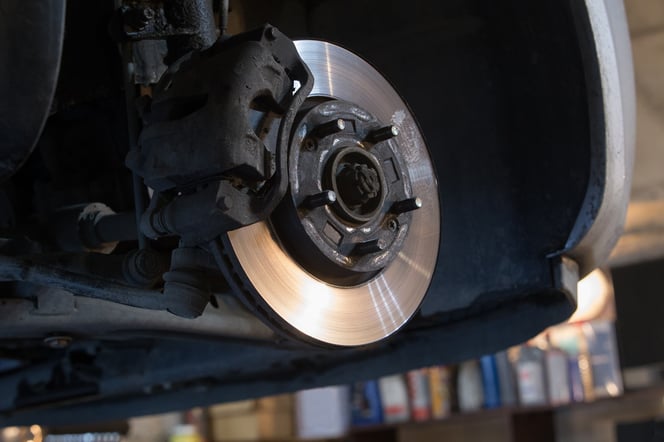How do you know you have faulty brakes on your vehicle? Symptoms include; less responsiveness or pedal sinking toward the floor, pulling to one side while braking, grinding or growling and vibration or pulsating brake pedal.
Brake pads and shoes will wear out over time. If the brake pads wear away completely the brake rotors will be damaged. The steel backing plate of the worn out brake pad will grind grooves into the rotor. At this point the brake rotor almost always needs to be replaced and that can be expensive.

How often should I have the brakes on my car checked and what things need to be serviced on the brake system?
Brake fluid is probably the most important fluid in your vehicle but also the most neglected. Over time, brake fluid absorbs moisture from the air (up to 2% of its volume per year) and the moisture lowers the boiling point of the fluid. A 3% accumulation of moisture will drop the boiling point of the fluid by 25%. This can lead to the brake pedal going spongy due to the fluid boiling under the heat of hard braking. To prevent this condition from happening, the fluid should be flushed periodically. The industry standard for this service is 2 years or 24,000 miles.
Putting off an inspection and brake repair is both expensive and dangerous because your vehicle may not stop as quickly.
Our suggestion is to perform a brake inspection every other oil change.
Have questions about your brakes, contact us. We've been serving the Denver area for more than 30 years.
Colorado drivers watch this video to learn more about your braking system.
Schedule an intermediate service and have our professionals perform a braking system inspection. Click Below to schedule:



